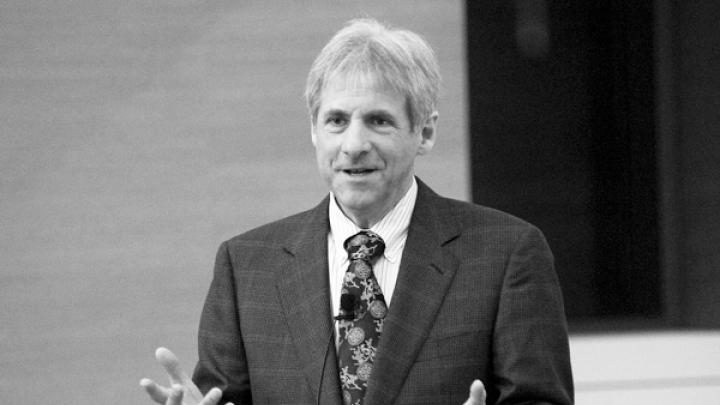In 1992, John Teton ’70 was eating dinner with his family when a news flash showed images of famine in Somalia and the war in Bosnia. Teton had been working on a novel Upsurge, which dealt with hunger and the formation of a world-wide coalition against it. But current events made the issue more immediate. His daughter turned to him and said, “If I were old enough I would get on a plane tomorrow and help feed those people.”
As director of the International Food Security Treaty Campaign (IFST) and president of its sister organization (IFST Association; www.treaty.org), Teton has spent that last 18 years working to do exactly that, seeking to “End Hunger by Law” by raising support for the creation of laws guaranteeing the right to freedom from hunger. Since Teton wrote the treaty’s core principles in 1993, the idea has been endorsed by a number of prominent supporters—from Abner Mikva, former judge of U.S. Court of Appeals for the District of Columbia Circuit, to Nobel laureate and Harvard professor Amartya Sen, whose writing on international health originally helped Teton conceive of his work.
Access to food has long been a concern of humanitarians. The Universal Declaration of Human Rights, written in 1948, holds that food should be available to all, but no enforceable laws accompany this declaration. As a result, Teton argues, there is no incentive for many states to uphold the pledge.
Under the treaty, which was drafted by a group of experts in 1996 in preparation for the World Food Summit, all countries would be answerable for the nutrition of their citizens. “We hope that the treaty can establish law that prohibits activity that denies people access to food,” Teton says. If a country failed to uphold the law, U.N. peacekeepers might become involved. But Teton hopes the treaty will be more preventative than punitive. The existence of hunger laws, he argues, might even diminish the number of countries who use hunger as a war tactic. He also envisions a global food reserve that member nations might turn to in times of famine.
Individual volunteers work with him around the country. He regularly speaks at universities to raise awareness about the subject: collaborating, for example, with the international human rights clinic at Willamette University College of Law. All the while, he encourages treaty supporters to contact their government representatives, urging them to become involved.
This combination of activities, he hopes, will help the treaty gain traction. “The treaty has evolved to a point where it is taken very seriously,” he notes. “But I will not get any blast of joy until the day it becomes law.”
Until then, Teton also has his hands full with his day job—teaching and producing films in Portland. His company, Earthlight Pictures, runs courses in animation for students all over the world. In his free time, he has continued to write novels.
Increasingly, his goal is to combine his two passions. A film about the treaty is in the works, which Teton hopes will be widely circulated on YouTube. “We need to stimulate grass-roots support on a broader scale,” he says. “We want people to encourage their political leaders to take action. We’ve set up the infrastructure [of the treaty campaign]—now it’s time to really get it going. ”







